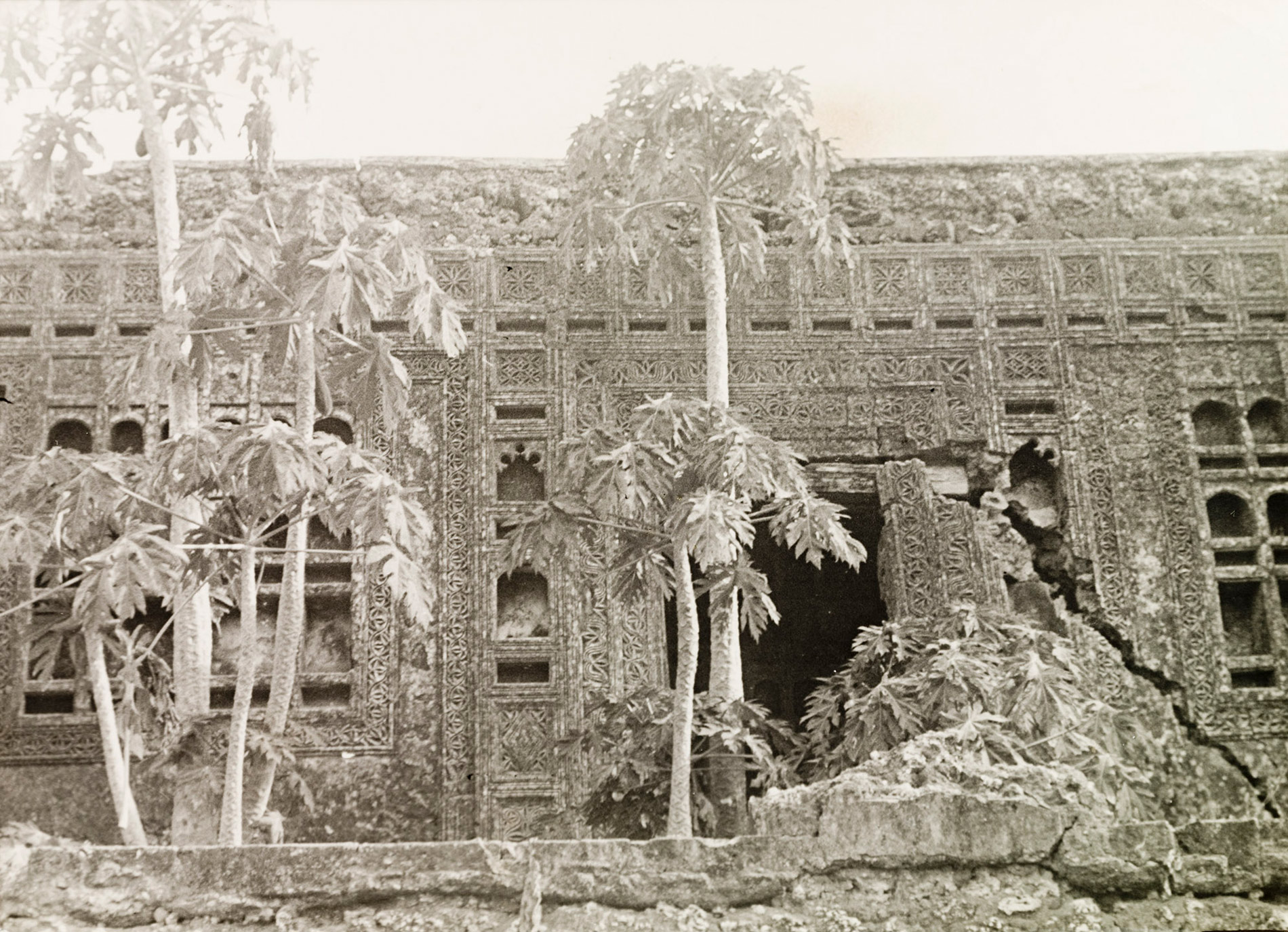Thursday, October 23, 2025, 6 – 7:30 pm
Resounding the Swahili Coast
Respondent Talk by Dr. Zulfikar A. Hirji
Pavilion
Dr. Hirji, associate professor in the Department of Anthropology at York University, explores the affordances and complexities of sounding and re-sounding the human and non-human life worlds of the Lamu Archipelago on Kenya’s Swahili Coast. Drawing on archival and participatory ethnographic research, the talk discusses how experimenting with sonic reconstructions may produce generative and sonorous spaces for coastal communities to critically address their long-silenced pasts and precarious futures.
An aspect of Hirji’s current research explores how cultural belongings and histories can challenge dominant museum narratives and offer more complete, community-led restitution when confronting colonial expansion. His respondent talk is presented as an extension of the processes and concepts addressed in When Water Embraces Empty Space, an exhibition by Tuấn Andrew Nguyễn recently on view. Hirji’s reflections resonate with the exhibition’s multifaceted approach to recovering the lesser-known histories of diasporic peoples and addressing the intergenerational effects of dispossession and loss. For Hirji, repatriation and decolonization are not abstract concepts, but practices rooted in pedagogy, curating, collaboration, and scholarship. He emphasizes repatriation to communities and lineal descendants, granting them the right to narrate, care for, and control their own heritage in a manner that expands how scholarship is seen and practiced.

Ruins of a mansion at Shela on Lamu Island, Kenya. Photograph: Elspeth Huxley, 1947. Reproduced by permission of British Empire & Commonwealth Collection (BECC), Bristol Archives.
Trained as an anthropologist and social historian, Dr. Zulfikar Hirji’s scholarly research and curatorial work examine the diversity and plurality of Muslim societies in a range of historical and contemporary contexts. His current research explores coastal East Africa’s pre-modern literary, visual, material, temporal, and sensory cultures and their contemporary resonances. His publications include Diversity and Pluralism in Islam (2010), Approaches to the Qur’an in Sub-Saharan Africa (2019), “Dispersal, Decolonization, and Dominance: African Muslim Objects from the Swahili Sultanate of Witu (1858-1923)” in Decolonizing Islamic Art in Africa (2024), and “Muslim Life in the Digital Age: The Art of Ali Kazimi, Faisal Anwar, Jamelie Hassan, and Fareena Chanda” (2025). His curatorial work includes a series of exhibitions for the Ismaili Centre Toronto: Cities of the Dead: The Ancestral Cemeteries of Kyrgyzstan – Photographs by Margaret Morton (2015), CharBagh, A Sensory Garden (2016), and Memories of Stone: Landscapes of Prayer, Death, and Commemoration in Bosnia and Herzegovina (2017).
For more information on Tuấn Andrew Nguyễn’s solo exhibition When Water Embraces Empty Space, please see here.
Tuấn Andrew Nguyễn is well-known for his multi-faceted video and sculptural installations through which he tells individual stories of immigration and diasporic movement. He is the recipient of the prestigious Joan Miró Prize in 2023. Nguyễn’s work has been included in major international exhibitions including the Asia Pacific Triennial, 2006; the Whitney Biennial, 2017; the Sharjah Biennial, 2019; and the Berlin Biennale, 2022. Recent one-person exhibitions include The New Museum, 2022; Fundació Joan Miró, 2023; and Zeitz Museum of Contemporary Art Africa, Cape Town, 2024. Nguyễn co-founded The Propeller Group in 2006, a platform for collectivity that situates itself between an art collective and an advertising company. Including in a major travelling retrospective beginning at the MCA Chicago in 2016, the collective has participated in international exhibitions such as The New Museum Triennial, 2012; LA Biennial, 2012; Prospect.3 New Orleans Triennial, 2014; and the Venice Biennale, 2015.
See also:







